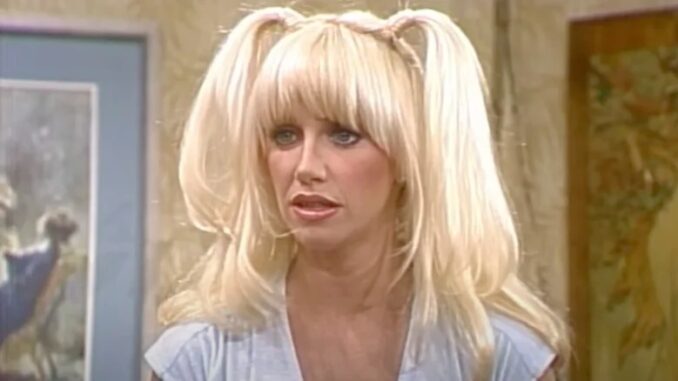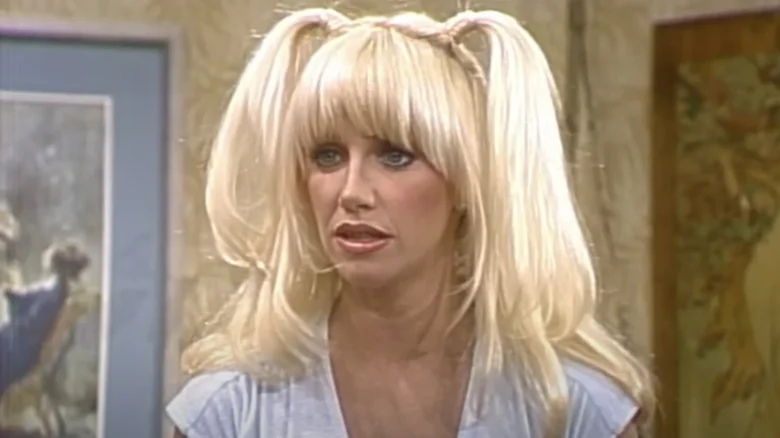
It’s a story as old as Hollywood itself: a hit show, soaring ratings, and behind-the-scenes tensions that eventually boil over. For all its comedic charm and mainstream success, Three’s Company wasn’t immune to the kind of drama that unfolds far from the studio lights. And when it came to Suzanne Somers’ departure, the reason still raises eyebrows more than four decades later.
Somers, who passed away on October 15, 2023, at the age of 76 after a long battle with breast cancer, leaves behind a legacy defined by bold choices and unforgettable performances. Best known for her role as the bubbly, wide-eyed Chrissy Snow, Somers completed the iconic trio alongside John Ritter (Jack Tripper) and Joyce DeWitt (Janet Wood). Together, they carried the quirky charm and cheeky energy that made Three’s Company a smash hit.
For four seasons, the chemistry between the leads helped attract tens of millions of viewers each week. But by Season 5, fans began to notice something strange: Chrissy was barely present. Her role had been reduced to short phone call cameos at the end of each episode, filmed separately from the rest of the cast. And by Season 6, Chrissy was gone altogether, replaced by her cousin Cindy (played by Jenilee Harrison).
So what happened?
A Pay Dispute That Made Television History
As Somers would later reveal, her diminished presence wasn’t creative — it was contractual. Behind the scenes, she had asked for a pay raise from $30,000 to $150,000 per episode — the same salary her co-star John Ritter was earning. It was, in her words, a simple and fair request. After all, the show’s concept relied equally on all three characters, and Somers’ popularity had helped catapult Three’s Company into a cultural phenomenon.
But the network didn’t see it that way.

Instead of meeting her in the middle, ABC offered just a $5,000 increase — a decision that Somers viewed as punitive. Speaking to The Hollywood Reporter in 2015 and Yahoo Life in 2021, Somers painted a picture of a workplace that wasn’t ready for a woman asking to be treated equally.
“I don’t know how much money they lost when they broke up that chemistry, but I think it was in the billions,” she said. “I hear it all the time to this day: ‘I never watched again when you weren’t there.'”
Producers couldn’t fire her outright due to her contract, so they sidelined her character instead. What followed was a dramatic reduction in screen time, tension on set, and ultimately, Somers’ quiet dismissal from the show.
A Conversation That Still Resonates
Even in 1980, the pay gap between male and female stars was a contentious issue — one that has only become more publicly scrutinized in recent years, particularly during events like the SAG-AFTRA strikes. Somers, long outspoken about her experience, has since been recognized as one of the early voices in the push for pay equity in television.
Though her role as Chrissy was often written off as a one-dimensional “dumb blonde,” Somers always defended the character — calling her “lovable” and someone with a strong “moral code.” More importantly, she stood by her decision to advocate for herself, even when it cost her one of the biggest jobs of her career.
Her story, once dismissed as diva behavior, now reads like an all-too-familiar tale of a woman asking for what she’s worth — and being penalized for it. In the end, Suzanne Somers wasn’t just part of a legendary sitcom; she was part of a larger, ongoing conversation about respect, value, and fairness in the entertainment industry.